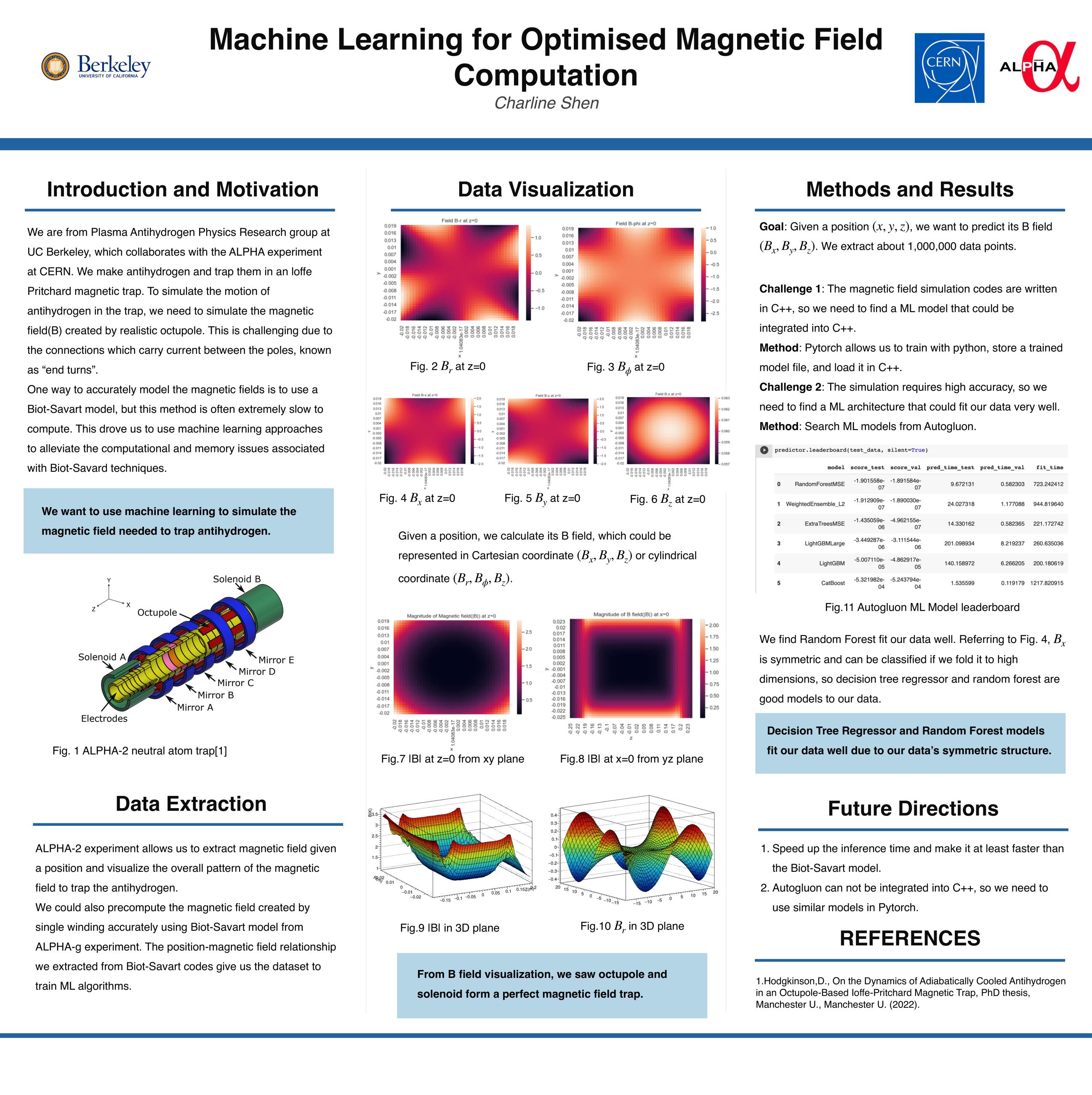We are from the Plasma Antihydrogen Physics Research group at UC Berkeley, which collaborates with the ALPHA experiment at CERN. At ALPHA, motivated by the Baryon Asymmetry Problem, we make antihydrogen by combining antiproton and positron plasmas. The antihydrogen is then trapped in an Ioffe Pritchard magnetic trap, where its fundamental properties (gravitational acceleration, energy levels and charge) can be interrogated and compared precisely to the well known hydrogen equivalents.
At ALPHA, we are often required to simulate the motion of antihydrogen atoms in the magnetic field of an Ioffe-Pritchard magnetic trap to gain understanding of antihydrogen dynamics in spectroscopy, gravity and charge neutrality experiments. These simulations must be accurate enough to closely mimic the behavior of an ensemble of trapped antihydrogen atoms, as well as fast enough to simulate a large ensemble of antihydrogen atoms on a reasonable timescale. Radial antihydrogen confinement in an Ioffe-Pritchard trap is achieved with an octupole magnet.
Although the magnetic field of an infinitely long octupole can be solved for analytically, simulating a realistic octupole is significantly more challenging due to the connections which carry current between the poles, known as "end turns". One way to accurately model the end turns is to use a Biot-Savart model, but this method is often extremely slow to compute. Alternatively, one can choose to pre-compute points on a grid prior to simulation run-time (using a Biot Savart model), and then interpolate from the points at run-time. However, the grid spacing required to achieve the desired accuracy often leads to memory issues and there can be issues associated with whether the interpolation generates a physically accurate magnetic field.
In this project, we propose to train a machine learning algorithm on a dense grid of data generated by a Biot Savart model of the ALPHA octupole magnet. The machine learning algorithm will alleviate the computational and memory issues associated with direct Biot Savart and Biot Savart grid interpolation techniques. The proposed project involves researching and implementing the machine learning algorithm, as well as testing the accuracy and robustness of the method.

